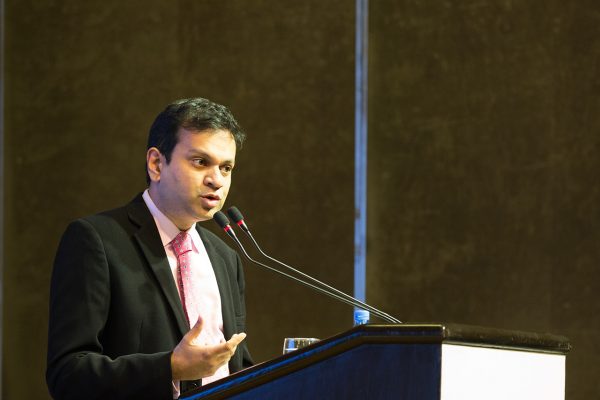In Court: BRAC Intern, Ashish Mitter, Reports from Dhaka’s Prisons
Reading Time: 3 minutes
This post was written by Ashish Mitter, an undergraduate student at Yale University who is interning with BRAC’s Human Rights and Legal Aid Services (HRLS) Program in Bangladesh. Ashish’s post is a reflection of a recent visit he made to Dhaka Central Metropolitan Magistrate’s Court.
This post was written by Ashish Mitter, an undergraduate student at Yale University who is interning with BRAC’s Human Rights and Legal Aid Services (HRLS) Program in Bangladesh. Ashish’s post is a reflection of a recent visit he made to Dhaka Central Metropolitan Magistrate’s Court.
Development is a word that has been on everyone’s lips for some time now, and debates concerning the nature and implications of ‘development’ form the staple of many a course on political science. Having encountered many of these debates in seminars and classrooms across the world, I increasingly find myself subscribing to the view that development that fails to respect the rights of marginalized and subaltern communities is destined to create fissures of conflict in society. I applied to intern with BRAC because I was attracted by its commitment to rights based development and wanted to see what this meant on the ground. How does BRAC as an organization go about ensuring that rights are protected and growth is inclusive? I found answers to these questions in the Human Rights and Legal Aid Services Programme’s legal education classes, in the support it extended to victims of domestic abuse, and perhaps most interestingly, in the Dhaka jails.
To the uninitiated, a visit to the Dhaka Central Metropolitan Magistrate’s Court has a distinctly unreal air to it. Lawyers scurry around in heavy black robes, in a futile bid to defy the humidity and the trickling sweat that it brings with it. Security guards with black teeth and orange tongues sit on rickety wooden chairs or lean against damp walls, rifles resting gently in their palms. Prisoners in tight shirts with logos of designer brands strewn in gold glitter across the front press against the bars of their overcrowded pen waiting for the judge to take up their case. The Court truly is, to employ an overused expression, a beehive of activity, and a somewhat intimidating place to be if you are a visitor, like I was.
Luckily I was met at the courts by Nazmul bhai (Nazmul Hoque) a man of good cheer and even greater commitment. Nazmul bhai is involved with a programme run jointly by HRLS and Deutsche Gesellschaft für Technische Zusammenarbeit (GTZ) which is designed to do some of the most unglamorous work there is in the field of legal advocacy—clearing out the bottlenecks that exist in the Bangladesh prison system. The majority of prisoners in Bangladesh are not convicts but under-trials—men and women whose fate has yet to be decided by Bangladesh’s creaking judicial system and who languish, sometimes for years, in jails, waiting for their fate to be decided. In Dhaka Central Jail for example, out of the 10 000 prisoners, 7,000 are under-trials. Many of these have been wrongly jailed. In 2008, BRAC and GTZ came together in order to expedite the cases of some of these prisoners. They do so by providing free legal assistance and representation to prisoners who are often in jail only because they can’t afford the services of a lawyer.
Nazmul bhai and his colleagues face an uphill task however. The overcrowding in the prisons means that the courts are truly overwhelmed and are unable to deal with as many cases as they should. In addition to this, there exists an unholy nexus between many lawyers and judges, who drag out cases and fill their pockets as a result. Finally, many prisoners themselves are suspicious of NGOs which profess to provide legal aid services as in many cases they have had bad experiences with government sponsored legal aid programmes.
While at the courts I met Nusrat (name changed), a 20-year old woman who had been in jail for five months without trial on the charge of drug abuse, a crime for which the minimum punishment is six months. Lawyers involved in the ‘Prison Project,’ as the programme has informally come to be known, selected her case as one in which they could push for speedy justice. If they had not intervened, Nusrat would have been in jail for months, perhaps even years, before her case came up. However Nusrat’s lawyers ensured that she pleaded guilty, and was sentenced to six months in jail, thus guaranteeing that she would leave jail in a month.
Talking to Ibrahim, a paralegal involved in the programme, however, I realized that the biggest challenge the programme faces is the sheer scale of the task. After working for almost two years, GTZ and BRAC have together been able to register 3,000 under-trial prisoners, and expedited the cases of just 45. The NGOs remain hamstrung by limited resources and so have currently only been able to make a cursory impact on Bangladesh’s prison system. One can only hope that the good work people like Nazmul bhai and Ibrahim are doing will spur other members of the legal profession to think beyond their wallets and about the poor, who often have to bear the full weight of the State’s practices.





